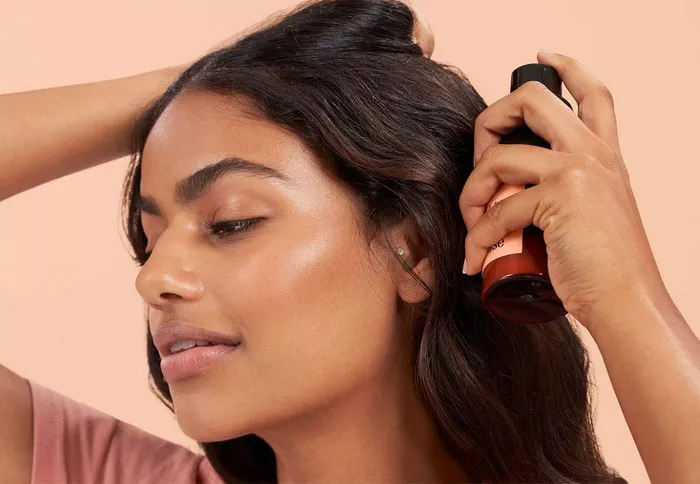The resurgence of drugstore shampoos has taken the beauty world by storm, with TikTok users embracing affordable brands that promise beautiful, healthy hair. Many well-known drugstore brands like Herbal Essences, Kristin Ess, Avalon Organics, and Suave Essentials are gaining new fans thanks to their ability to deliver shiny, healthy hair without breaking the bank. However, with this renewed interest in hair care products, there are still numerous myths surrounding shampoo that could be hindering your hair’s potential. To clear up some of the confusion, Dr. Ross Kopelman, a hair restoration surgeon, sheds light on the most common misconceptions in the shampoo world.
Shampoo Myths That Could Be Harming Your Hair Health
Myth #1: Expensive Shampoos Are Always Better
It’s easy to assume that the pricier the shampoo, the better the results. However, Dr. Kopelman emphasizes that it’s not the price tag that matters but rather the ingredients and how they match your specific hair needs. For instance, someone with oily hair may benefit from a clarifying shampoo, while someone with dry hair might require a more hydrating formula.
The truth is, many drugstore shampoos provide effective, basic cleansing without the hefty price. Dr. Kopelman advises focusing on the formulation that works best for your hair type, rather than opting for an expensive product that may not address your unique concerns. Ultimately, the effectiveness of a shampoo boils down to its ability to target and treat your hair’s specific needs, not the amount you spend.
Myth #2: Sulfates and Silicones Are Always Harmful to Hair
Sulfates and silicones have earned a bad reputation in the hair care community, with many believing these ingredients harm the hair. However, Dr. Kopelman argues that the effect of these ingredients depends on the individual’s hair type and how often they’re used. Sulfates, like sodium lauryl sulfate, are excellent at cleansing and removing buildup but can be harsh on dry or color-treated hair. On the other hand, silicones help smooth and add shine to the hair, though they can accumulate over time and weigh hair down.
Dr. Kopelman suggests avoiding sulfates if you have dry or sensitive hair, and recommends those with fine hair avoid silicones. However, he stresses that neither ingredient will permanently damage hair. The trick is to find products that work with your hair type rather than avoiding certain ingredients altogether.
Myth #3: Washing Hair Daily Causes Dryness and Hair Damage
One of the most persistent myths in hair care is that shampooing every day dries out your hair. While it’s true that overuse of harsh shampoos can strip your scalp of natural oils, Dr. Kopelman reassures that washing your hair daily with the right products won’t cause dryness or hair loss.
In fact, infrequent washing can sometimes lead to other issues like dandruff or clogged follicles, which could potentially hinder healthy hair growth. Dr. Kopelman emphasizes that hair loss from shampooing is a misconception—any shedding that happens while washing is part of the natural hair cycle. Washing daily with a gentle, suitable shampoo helps maintain scalp health and encourages hair growth.
Myth #4: You Must Rotate Shampoos to Keep Them Effective
Many people believe that if they use the same shampoo for too long, their hair will “get used to it” and the product will stop being effective. However, Dr. Kopelman explains that this is simply not true. While your hair doesn’t lose its response to a shampoo over time, using the same product for an extended period can lead to residue buildup, particularly with shampoos that contain silicones. This can make your hair feel heavy or look dull.
Dr. Kopelman suggests occasionally rotating in a clarifying shampoo to help remove any product buildup and restore hair’s natural shine. It’s not about your hair getting used to the product—it’s about maintaining hair health and preventing residue from interfering with the results.
Conclusion
Dr. Kopelman’s insights show that hair care doesn’t need to be complicated or expensive. The most important factors to consider when choosing a shampoo are the ingredients and how well they address your unique hair needs. Instead of relying on common myths, focus on your hair type, concerns, and scalp health. Whether you choose an affordable drugstore option or a high-end product, the key is to find a shampoo that works for you. By following these tips and debunking myths, it’s possible to achieve healthy, beautiful hair without spending a fortune or falling prey to common misconceptions.
Related topics:
- Nykaa Naturals Launches Rice Water & Hyaluronic Acid Haircare Range
- Luteolin: A Potential Breakthrough in Preventing Hair Graying
- Keke Palmer Named Chief Brand Officer of Creme of Nature


